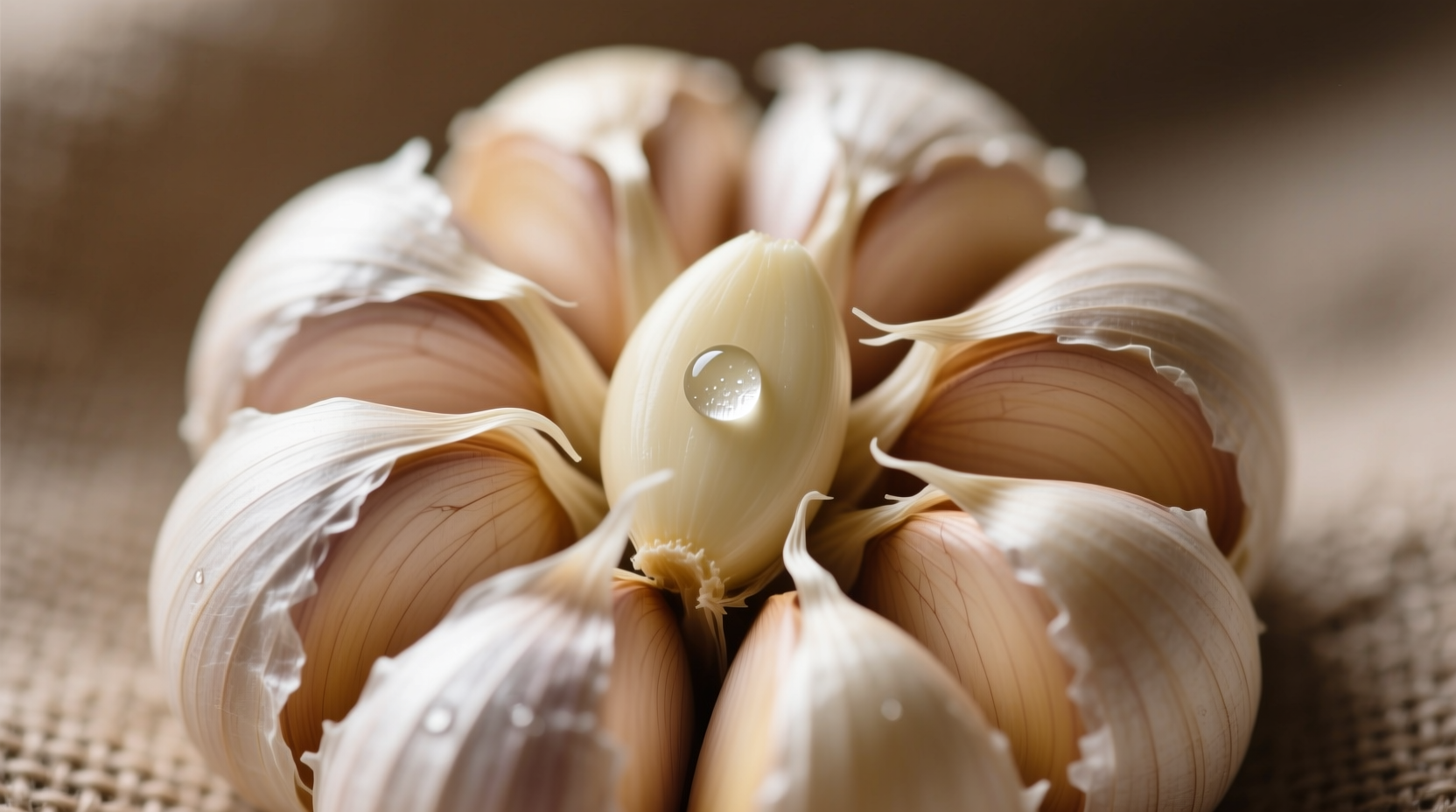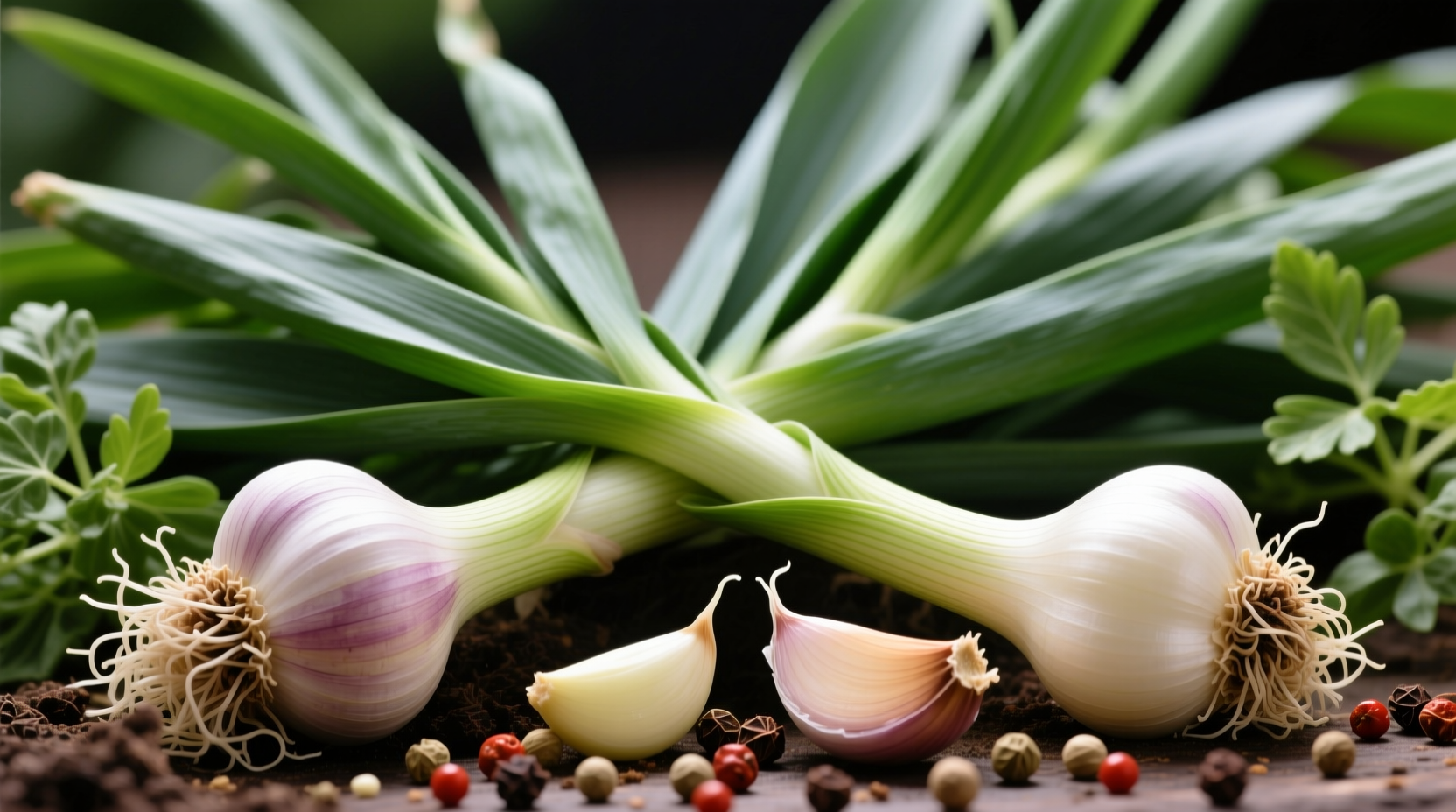No, garlic is not an herb. It's a vegetable belonging to the Allium family, specifically classified as a bulb. This botanical fact surprises many home cooks who routinely group garlic with herbs like basil and parsley in the kitchen.
Understanding whether is garlic an herb matters more than you might think. Get this classification wrong, and you could miss out on optimal storage techniques, flavor pairings, and gardening practices that make the most of this culinary staple. Let's clear up this common kitchen confusion once and for all.
Botanical Classification: Why Garlic Isn't an Herb
From a scientific perspective, herbs are defined as seed-producing plants with non-woody stems that die back to the ground after flowering. Garlic (Allium sativum) doesn't fit this definition. Instead, it's classified as a vegetable specifically within the bulb category.
The confusion often stems from culinary usage rather than botanical accuracy. In cooking contexts, "herb" frequently refers to any plant used for flavoring, but this casual usage differs significantly from scientific classification.
| Plant Type | Botanical Definition | Garlic's Classification |
|---|---|---|
| Herb | Non-woody plants with aromatic properties, typically leaves/stems used for flavoring | ❌ Doesn't apply |
| Spice | Dried parts of plants (seeds, roots, bark, fruits) used for flavoring | ❌ Doesn't apply |
| Bulb Vegetable | Underground storage organ consisting of layered fleshy leaves | ✅ Correct classification |
Garlic Through History: A Classification Timeline
Garlic's classification has evolved alongside botanical science. Understanding this historical context explains why confusion persists today:
- Ancient Times: Egyptians and Greeks categorized garlic as a medicinal plant rather than distinguishing between herbs and vegetables
- Medieval Period: European herbals like De Materia Medica grouped garlic with "pot herbs" based on culinary usage
- 18th Century: Linnaeus formally classified garlic as Allium sativum, establishing its botanical identity
- Modern Era: USDA and botanical authorities consistently classify garlic as a vegetable bulb
According to the USDA Plants Database, garlic belongs to the Amaryllidaceae family, further confirming its status as a vegetable rather than an herb. This authoritative classification has remained consistent in botanical science for over two centuries.
Culinary Reality: Why Garlic Gets Treated Like an Herb
Despite its botanical classification, garlic functions differently in cooking than most vegetables. This practical reality explains the persistent confusion:
- Used in small quantities primarily for flavor enhancement rather than as a main ingredient
- Often paired with true herbs in seasoning blends and marinades
- Rarely consumed as a standalone vegetable (unlike carrots or potatoes)
- Processed similarly to herbs (minced, crushed, or sliced before use)
Professional chefs like those at the Culinary Institute of America recognize this distinction. As explained in their On Cooking: A Textbook of Culinary Fundamentals, "While botanically a vegetable, garlic serves a flavoring function more akin to herbs and spices in most culinary applications."

Practical Implications for Home Cooks
Understanding garlic's true nature as a bulb vegetable rather than an herb has real kitchen benefits:
Storage Matters
Unlike herbs that typically require refrigeration, garlic bulbs should be stored in a cool, dark, dry place with good air circulation. Refrigeration can cause sprouting and texture changes. Whole bulbs can last 3-5 months when stored properly, while individual cloves last about 3 weeks.
Cooking Techniques
Garlic's chemical composition reacts differently to heat than most herbs. When sautéing, add garlic after onions but before delicate herbs like basil. The compound allicin, responsible for garlic's distinctive flavor, develops when cells are ruptured through cutting or crushing.
Gardening Considerations
If growing your own, remember garlic requires different care than herb gardens. Plant cloves (not seeds) in well-drained soil with full sun exposure. Unlike perennial herbs, garlic is typically grown as an annual crop with specific planting seasons depending on your climate zone.
When Garlic Functions as an Herb
There are specific culinary contexts where treating garlic as an herb makes practical sense:
- Infused oils: Like herb-infused oils, garlic can be steeped in oil to extract flavor compounds
- Compound butters: Similar to herb butters, garlic blends beautifully with softened butter
- Marinades: Functions like dried herbs in penetrating proteins with flavor
- Flavor bases: Forms part of the "holy trinity" or mirepoix in many cuisines, working alongside herbs
This contextual flexibility explains why the question is garlic an herb generates so much confusion. The answer depends on whether you're approaching from a botanical or culinary perspective.
Common Misconceptions Clarified
Let's address several persistent myths about garlic classification:
- Myth: "Garlic is a spice because it's used for flavoring" Fact: Spices come from dried plant parts (seeds, bark, roots), while garlic is used fresh as a vegetable bulb
- Myth: "All flavoring plants are herbs" Fact: The culinary term "herb" is broader than the botanical definition, creating confusion
- Myth: "Garlic grows like an herb" Fact: Garlic grows from cloves (bulb segments) rather than seeds like most herbs
Understanding these distinctions helps you make better decisions in the kitchen and garden. When searching for information about is garlic considered an herb, knowing the context of the answer becomes crucial.
Conclusion: Embracing the Complexity
The question is garlic an herb reveals an interesting tension between scientific classification and culinary practice. Botanically, garlic is unequivocally a vegetable bulb. Culinary tradition, however, often treats it as a flavoring agent similar to herbs.
Recognizing this distinction empowers you to use garlic more effectively in your cooking. Store it like a vegetable, prepare it with consideration for its chemical properties, and pair it thoughtfully with both herbs and other vegetables for maximum flavor impact.











 浙公网安备
33010002000092号
浙公网安备
33010002000092号 浙B2-20120091-4
浙B2-20120091-4